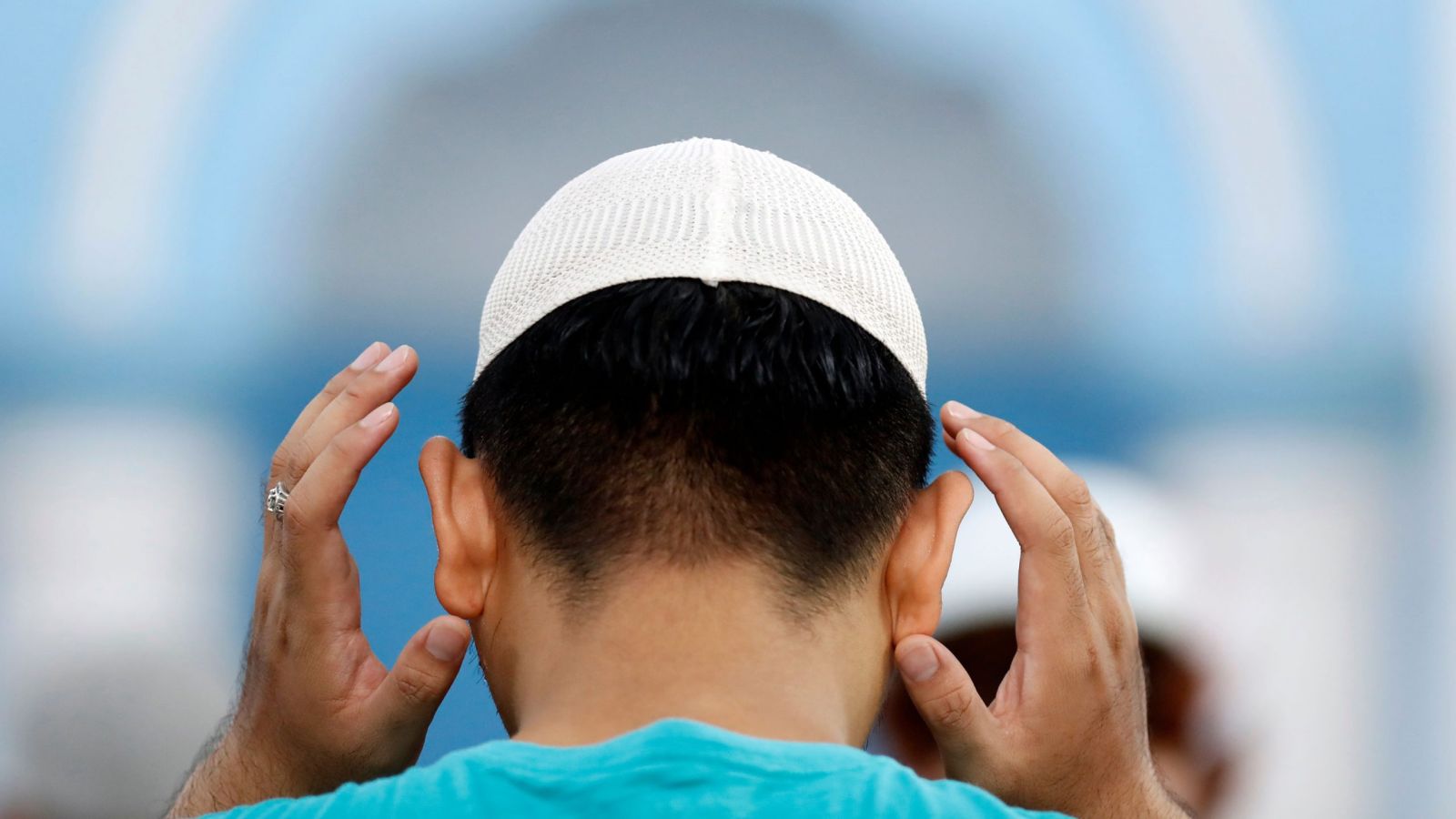Is it Permissible to Use Divine Decree as Justification for One’s Misdeeds?
Imām Ibn al-Qayyim


Narrated by Abū Hurayrah (رضي الله عنه) who said: The Messenger of Allāh (صلى الله عليه وسلم) said: Ādam (عليه السلام) and Mūsá (عليه السلام) argued with one another. Mūsá said: “O Ādam! You are our father, yet you have failed us and extricated us from Paradise.” So Ādam replied: “You are Mūsá. Allāh has chosen you with His words and written the Tawrāh for you with His hand. Do you blame me in relation to a matter which Allāh had decreed for me forty years before He had created me?” The Prophet (صلى الله عليه وسلم) said thrice: “So Ādam bested Mūsá in their arguement”.1
Imām Ibn al-Qayyim (d. 751 AH) comments:
Mūsá (عليه السلام) was more knowledgeable regarding the names and attributes of Allāh than to assign blame in relation to a sin for which repentance had already been sought by the enactor [Ādam]. Likewise, Ādam (عليه السلام) was more knowledgeable regarding his Lord than to use His divine decree and judgement as an evidence to support his own malfeasance.
Rather, Mūsá blamed Ādam in relation to the action of disobedience whose ramifications reached the family of Ādam in the form of their extrication from Paradise, and their descension to a place of trials and afflictions all due to the mistake committed by their father. Here, he only mentioned the mistake because it was the reason for the catastrophe and affliction that then befell the family of Ādam. It is for this reason that he says [in one narration]: “You have extricated us and yourself from Paradise”, and in another wording: “you have failed us”. Ādam uses the divine decree to evidence the occurrence of the catastrophe, [not his misdeed]. He is saying that this catastrophe that befell my progeny as a result of my misdeed was written in His divine decree before He even created me. The divine decree may be used to evidence the occurrence of catastrophe, not one’s misdeeds. That is, do you blame me for a catastrophe that was divinely decreed against me and yourselves before He created me by so-and-so number of years? This is the answer given by our Shaykh [Shaykh al-Islām Ibn Taymiyyah (رحمه الله)].
There is another answer which also holds validity. This is that using the divine decree as evidence for sin holds benefit in one instance and harm in another. It benefits if it occurs after the sin was committed and sincerely repented from to where the perpetrator has abandoned returning to it, as is the circumstance with Ādam. Mentioning the divine decree in this circumstance acts to reinforce tawḥīd, as well as knowledge of the names and attributes of Allāh. This is because this type of acknowledgment acts to benefit the speaker and the one listening as divine decree is not being used here for the purpose of rejecting a command or prohibition or falsifying legislation. Rather, it is being used to support the unadulterated truth while recognising tawḥīd, and declaring all power and changes of state as being from Allāh alone. This is made clear in the saying of Ādam to Mūsá: “Do you blame me for engaging in an action that was written for me before I was even created?”
Thus, if a person engages in a sin, then repents from it sincerely to where it is as if the sin never occurred in the first place, then another reminds him of it, reprimanding and blaming him for it, here it is most appropriate that the reformed sinner uses the divine decree. He may say: That was a matter which was decreed for me before I was created. He has not used the divine decree to defend himself in actuality, nor to support the perpetration of falsehood and there is no precaution in him using the divine decree in this way.
As for the circumstance wherein using the divine decree represents a means of harm, it is using it to support current or future actions. That is, one engages in ḥarām, or abandons that which is obligatory upon him, then when a person blames him for his crimes he uses divine decree as evidence to support his current actions and justify his continuation of it. Here, using the divine decree as evidence is completely false and he is guilty of spreading falsehood. For such is the argument used by those who choose to continue their state of polytheism, worshipping others besides Allāh, stating:
لَوْ شَاءَ اللَّهُ مَا أَشْرَكْنَا وَلَا آبَاؤُنَا
“If Allāh had willed, we would not have taken partners (in worship) with Him.”
(Al-Anʿām, 6:148)
لَوْ شَاءَ الرَّحْمَٰنُ مَا عَبَدْنَاهُم
“If it had been the Will of the Most Beneficent (Allāh), we should not have worshipped them (false deities).”
(Al-Zumar, 43:20)
Here, they use the divine decree to prove the correctness of their positions, that they have no regret for what they engage in, nor do they intend to ever abandon it, nor do they believe their actions to be corrupt. This is representative of the exact opposite of the one who has his mistake clarified, feels regret, then possesses resolute determination to never return to his previous action. Then, when a person blames him afterwards, he replies: “What has occurred has occurred by the divine decree of Allāh.” The crux of this issue is: Whenever the blame for a sin has been lifted, it is permissible for one to use the divine decree to evidence its occurrence. However, insofar as the blame for a sin is present, using the divine decree to evidence its occurrence is false.
[Q]: Was divine decree not used to evidence abandonment of night prayers and the Prophet (صلى الله عليه وسلم) approved the usage of it in this context, as authentically narrated by ʿAlī (رضي الله عنه) that the Prophet (صلى الله عليه وسلم) knocked his and Fāṭimah’s (رضي الله عنها) door one night saying to them: “Haven’t you prayed?” He [ʿAlī] said: I replied: “O Messenger of Allāh! Our souls are in the hand of Allāh. If He wills that they are awakened, he would have awakened them.” So the Messenger of Allāh (صلى الله عليه وسلم) left when I said that to him and did not reply to me. Then, I heard him while his back was towards me, beating his thigh, saying:
وَكَانَ الْإِنسَانُ أَكْثَرَ شَيْءٍ جَدَلًا
“But, man is ever more quarrelsome than anything.”2
(Al-Kahf, 18:54)
[A]: ʿAlī (رضي الله عنه) did not use the divine decree here to abandon that which was obligatory upon him, nor to to support the perpetration of that which was ḥarām. Rather, he was only saying: Indeed, his soul and that of Fāṭimah (رضي الله عنها) are in the hand of Allāh. Thus, if He wills to awaken them and raise them [for prayer], he would have raised them [from their slumber]. Such a statement is consistent with the statement of the Prophet (صلى الله عليه وسلم) on the night that he and his companions slept in the valley [and missed the Fajr prayer]: “Indeed, Allāh takes our souls whenever He wills, and returns them whenever He wills.”3 This is the correct methodology of evidencing divine decree, as his companions were excused in this situation. As the sleeping person is not guilty of carelessness. As such, him evidencing the divine decree in this situation is correct.
Furthermore, the Prophet (صلى الله عليه وسلم) has guided us to the utilisation of divine decree in situations wherein such a thing is beneficial to the slave of Allāh. Muslim narrated in his Ṣaḥīh4 on the authority of Abū Hurayrah (رضي الله عنه) who said: The Messenger of Allāh (صلى الله عليه وسلم) said: “The strong believer is better and more beloved to Allāh than the believer who is weak, but in both there exists goodness. Aspire and pursue that which holds benefit for you. Seek aid from Allāh and never despair. If some catastrophe befalls you, do not say: “If I had only done such-and-such”. Rather, say: “This is the divine decree of Allāh, and whatever He wills shall come to pass.” For, indeed, the word ‘if’ open the door to the actions of Shayṭān.”
This ḥadīth comprises some of the greatest foundations of Islām:
- One of them is that Allāh is described with the action of love and that He loves in actuality.
- He loves that which is among the stipulations of His own names and attributes. So, He is strong and loves the strong believer. He is One, He loves odd numbers. He is Beautiful and loves that which is beautiful. He is All-Knowing and loves the knowledgeable. He is clean and loves cleanliness. He is the Giver of security and loves the believers. He is the Good-Doer and loves those who do good. He is the Patient and loves those who show patience. He is the One who gives Thanks and loves those who show gratitude.
- There is disparity in His love for the believers as He loves some of them more than others.
- A person’s happiness is found in him pursuing that which holds benefit to him in terms of this worldly life and the hereafter. Aspiring and pursuing here refers to expending effort and struggling to the very utmost of one’s abilities. If such effort is spent on that which holds benefit for the person, his struggles are considered praiseworthy. His true perfection is in combining these two matters: that he is both aspirational and driven, and that his aspirations are in pursuit of that which holds benefit. Thus, if he was to aspire in the pursuit of that which is futile, or lack the drive and ambition in the pursuit of that which is beneficial, he will be deficient of true perfection in a manner that is proportional to his deficiency in either of these two matters. Thus, goodness in its entirety comes from actively pursuing that which is beneficial. Considering this, the drive, ambition, and actions that one engages in all occur with the aid of Allāh, and by His leave, and guidance. Thus, he orders that a person also seeks His aid such that the standing inherent in the [following] verse may be realised:
إِيَّاكَ نَعْبُدُ وَإِيَّاكَ نَسْتَعِينُ
“You (Alone) we worship, and you (Alone) we ask for help (for each and everything).”
(Al-Fātiḥah, 1:5)
For, indeed, him pursuing that which is beneficial to him is a form of worship to Allāh. His achievement of it shall not occur except with Allāh’s help. It is for this reason that He has ordered him to worship Allāh and seek His aid.
Then he (صلى الله عليه وسلم) said: “And never despair.” This is because despair negates the drive and ambition he must show towards that which holds benefit to him, just as it opposes the act of seeking help from Allāh. As the one who aspires to that which is beneficial while seeking aid from Allāh is the exact opposite of the one who chooses to be in a state of despair. This represents a means of guiding towards that which is from among the greatest means by which the divine decree is ultimately attained—which is to aspire towards it while seeking aid from the one in whose Hands the reigns of the matter truly resides. From Him it emanates, and to Him it returns.
If the goal goes unattained in accordance with His decree, then people will find themselves in one of two situations: A state of despair representative of the keys to Shayṭān’s handiwork. He meets his circumstance with this despair saying “If” while this word holds no benefit for him here. Rather, it represents an opening for blame, anxiety, annoyance, sadness, and depression all of which are from the actions of Shayṭān. Thus, he (صلى الله عليه وسلم) has forbade opening the actions of Shayṭān with this key [i.e., the word ‘if’].
He orders him, instead, to adopt the second state of being which is acknowledgment of the divine decree and recognition of it. Knowing that if He had willed the attainment of this matter for him, it would never have missed him, nor would anyone have the capability to rob him of it. There is nothing left which is more beneficial to him than attesting to the occurrence of the divine decree and the implementation of the will of his Lord which stipulates the unerring occurrence of that which has been decreed such that if He has not willed its occurrence, it shall never occur. It is for this reason that he (صلى الله عليه وسلم) said: “If the matter should overcome you [i.e., a catastrophe, or nonattainment of your goal], do not say: “If I had only done such-and-such”. Rather, say: “This is the divine decree of Allāh, and whatever He wills shall come to pass.”
So, he (صلى الله عليه وسلم) guides towards that which is of the most benefit in both circumstances—in the attainment of one’s goal or missing out on it. For this reason, this ḥadīth is one that the servant of Allāh shall never be able to do without. Rather, it represents the greatest and most dire requirement for him as it comprises confirmation of divine decree, the earning of a person, his free will, his execution of action, worship—both the forms that are apparent and hidden—in the circumstance of attainment of one’s goals and the lack thereof.
And with Allāh belongs true guidance.
Endnotes:
[1] Authentic: narrated al-Bukhārī: 6614 and Muslim: 2652.
[2] Authentic: narrated by Muslim: 206.
[3] Authentic: narrated by al-Bukhārī: 595 and Muslim: 681.
[4] Authentic: narrated by Muslim: 2664.
Source: Shifāʾ al-ʿAlīl: 27-35
Translated by: Riyāḍ al-Kanadī
Most Popular: Last 30 Days

















